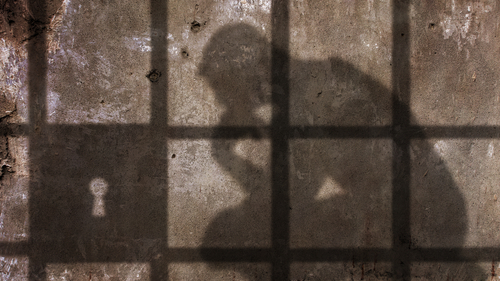How elimination of cash bail is working in Illinois after 1 month

As of Oct. 12, Cook County, Illinois, reported that 4,909 defendants were in jail, the second-lowest number in nearly four decades. The lowest number was recorded in 2020 amid a COVID-19 outbreak. Image from Shutterstock.
The jail population is down in Cook County, Illinois, and pretrial detention hearings are getting longer throughout the state after a law eliminating cash bail took effect.
Illinois became the first state in the nation to eliminate cash bail after the state supreme court rejected constitutional arguments.
The law took effect Sept. 18, report the Chicago Tribune and WBEZ via the Chicago Sun-Times.
The law creates a default rule that all people charged with an offense are eligible for pretrial release on personal recognizance, subject to conditions of release set by a judge that may include electronic monitoring. Defendants charged with misdemeanors or other minor offenses will be released and will not be subject to pretrial conditions. Defendants who are considered a danger to the public or a flight risk will be held.
As of Oct. 12, Cook County reported that 4,909 defendants were in jail, the second-lowest number in nearly four decades. The lowest number was recorded in 2020 amid a COVID-19 outbreak, according to WBEZ.
A day before the effective date of the new law, Cook County had 5,419 inmates in jail.
Experts didn’t expect a big decrease in Cook County because it adopted bail reform in 2017. Immediately before the change, as many as 7,700 inmates were housed in the jail. The number decreased below 7,000 soon afterward and continued to fall, according to the Chicago Tribune.
Jail populations in some downstate counties are also decreasing, WICS reports.
David Olson, co-director of Loyola University Chicago’s Center for Criminal Justice, said it’s unclear whether the jail population will stay so low. Fewer people will likely be admitted to jail, but those who remain incarcerated might stay there longer because there is no mechanism for posting bail, he told WBEZ.
The law is leading to more extensive detention hearings, creating challenges for judges and lawyers, according to Scott Schultz, the chief public defender in the small Illinois counties of Calhoun and Jersey.
“The small counties just have a very difficult time to meet time requirements under the act,” Schultz told the Chicago Tribune. “Resources are a huge issue, absolutely.”
The law is also leading to more appeals by defendants who have 45 days to challenge detention orders, said William Bertrand, a special public defender in Livingston County, Illinois, who also spoke with the Chicago Tribune.
In one case, a man accused of murder was released before trial, Fox 2 Now reports. The lawyer for defendant Michael Perham said he had acted in self-defense, had called police and was not a threat.
Perham was initially released on bond, but prosecutors tried unsuccessfully to send him back to jail under the new law.



